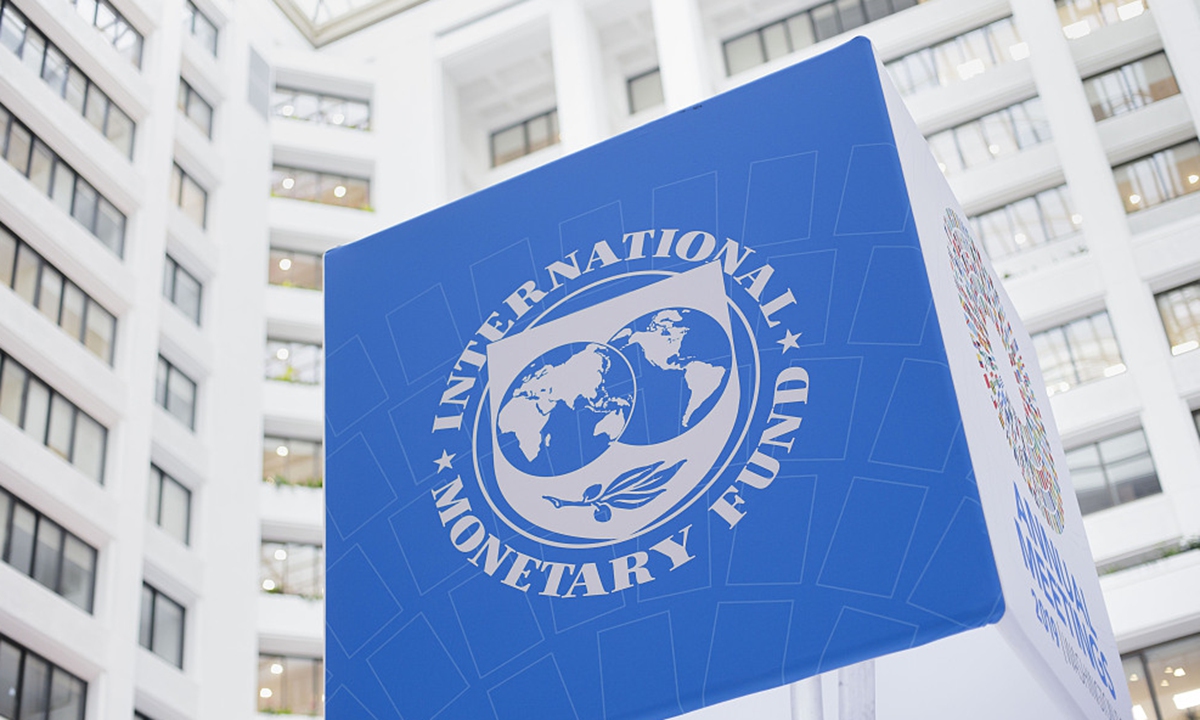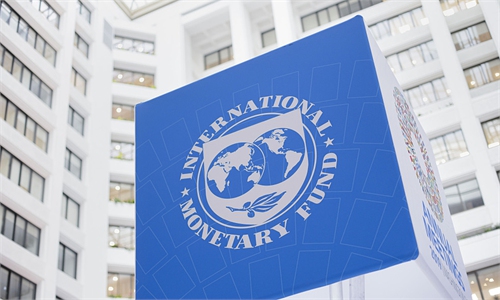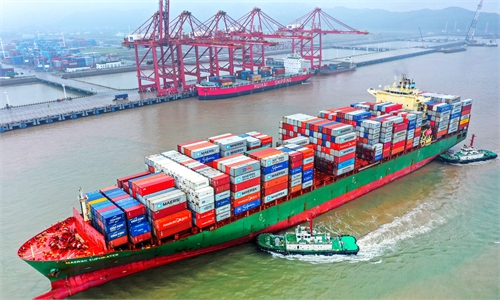
IMF Photo: VCG
China's economy is seeing a strong rebound which "matters for the country itself and matters for the world", said Kristalina Georgieva, managing director of International Monetary Fund (IMF) on Sunday during a panel discussion at the 2023 China Development Forum.
According to a statement that the IMF sent to the Global Times, Georgieva said that the robust rebound means China is set to account for around one third of global growth in 2023 — giving a welcome lift to the world economy.
"And beyond the direct contribution to global growth, our analysis shows that a 1 percentage point increase in GDP growth in China leads to 0.3 percentage point increase in growth in other Asian economies, on average — a welcome boost," Georgieva said.
The IMF's January forecast puts China's GDP growth at 5.2 percent this year— a sizeable increase of more than 2 percentage points from 2022. Driving this growth is the anticipated rebound of private consumption as the economy has reopened and activity has normalized.
"With such a solid recovery, China can now build on positive momentum and — through comprehensive policies — stay on the growth path towards convergence with advanced economies," Georgieva said.
Citing a Chinese saying "The whole year's work depends on a good start in spring," she highlighted two opportunities for the country's policymakers.
The first opportunity is to raise productivity and rebalance the economy away from investment, and towards more consumption-driven growth that is more durable, less reliant on debt, and will also help address climate challenges. To get there, the social protection system will need to play a central role through higher health and unemployment insurance benefits to cushion households against shocks, she noted.
At the same time, market-oriented reforms to level the playing field between the private sector and state-owned enterprises, together with investments in education, would significantly lift the economy's productive capacity.
IMF research showed that productivity enhancing reforms in China could lift real GDP by as much as 2.5 percent by 2027, and by 18 percent by 2037— growth that would be of both higher quality and more inclusive.
Green growth is another opportunity. Georgieva said the IMF welcomes China's goal of net-zero emissions by 2060, a commitment that underlines the importance of tackling climate change for long-term development.
Policies to rebalance the economy will simultaneously help achieve China's climate goals, as most of the country's carbon dioxide emissions are generated from power and industrial activities — so moving to consumption-led growth will cool energy demand, she noted.
Looking forward to the world economy, "however, spring is yet to come," Georgieva said.
The IMF expects 2023 to be another challenging year, with global growth slowing to below 3 percent as scarring from the pandemic, the Russia-Ukraine crisis, and monetary tightening weigh on economic activity.
It is also clear that risks to financial stability have increased. At a time of higher debt levels, the rapid transition from a prolonged period of low interest rates to much higher rates — necessary to fight inflation — inevitably generates stresses and vulnerabilities, as evidenced by recent developments in the Western banking sector.
"Policymakers have acted decisively in response to financial stability risks, and some advanced economies' central banks have enhanced the provision of US dollar liquidity. These actions have eased market stress to some extent, but uncertainty is high which underscores the need for vigilance," Georgieva said.
Georgieva highlighted China's constructive role in addressing global challenges, including through its contributions to IMF's Poverty Reduction and Growth Trust, its vital financing for new Resilience and Sustainability Trust, and, in helping highly-indebted countries.
In the months and years ahead, continuing to support the world's most vulnerable countries will be vital. "We can only solve the world's biggest challenges—and avoid the pitfalls of fragmentation — through cooperation," she said.



